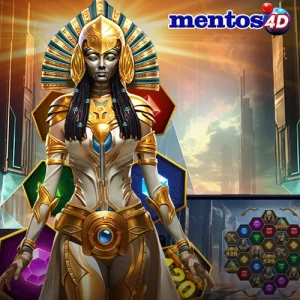In the realm of entertainment, few mediums offer the immersive experience and interactive engagement quite like video games. From the early days of Pong and Pac-Man to the sophisticated, narrative-driven epics of today, games have evolved into a multifaceted form of expression, combining artistry, technology, and storytelling to captivate audiences worldwide.
The Evolution of Gaming
The history of video games traces back to the late 20th century, with the birth of arcade classics like Space Invaders and Donkey Kong. These simple yet addictive games laid the foundation for an industry that would eventually surpass Hollywood in terms of revenue. As technology advanced, so did the complexity and scope of games, leading to the emergence of home consoles like the Nintendo Entertainment System (NES) and Sega Genesis.
The turn of the millennium brought about a new era of gaming with the https://mentos4d.news rise of 3D graphics, online multiplayer, and immersive worlds. Titles like “Final Fantasy VII,” “The Legend of Zelda: Ocarina of Time,” and “Half-Life” pushed the boundaries of storytelling and gameplay, captivating players with rich narratives and expansive game worlds.
Diversity in Gaming
One of the most notable developments in recent years is the diversification of the gaming landscape. No longer dominated solely by action-packed shooters or fantasy RPGs, games now encompass a wide range of genres and themes, catering to players of all interests and backgrounds. From indie darlings like “Undertale” and “Celeste” to AAA blockbusters like “The Witcher 3” and “Red Dead Redemption 2,” there is truly something for everyone in the world of gaming.
Furthermore, the industry has made significant strides in promoting diversity and inclusion both in-game and within development teams. Games like “Life is Strange” and “Gone Home” tackle sensitive topics such as mental health and LGBTQ+ issues with nuance and empathy, while initiatives like the IndieCade festival celebrate underrepresented voices in game development.
The Power of Gaming
Beyond entertainment, games have also demonstrated their potential as powerful tools for education, therapy, and social change. Educational games like “Minecraft: Education Edition” and “Kerbal Space Program” encourage creativity and problem-solving skills in children, while therapeutic games like “Sea of Solitude” and “Hellblade: Senua’s Sacrifice” offer a unique outlet for exploring mental health issues.
Moreover, the gaming community has proven to be a force for good, rallying behind charitable causes and humanitarian efforts. Events like Games Done Quick raise millions of dollars for charity through speedrunning marathons, while games like “That Dragon, Cancer” and “This War of Mine” shed light on real-world struggles and injustices, fostering empathy and understanding among players.
Looking Ahead
As technology continues to advance and boundaries blur between different forms of media, the future of gaming appears brighter than ever. From the advent of virtual reality and augmented reality to the potential of cloud gaming and artificial intelligence, the possibilities are endless. What remains constant, however, is the fundamental appeal of games as a means of expression, connection, and exploration.
In conclusion, games have evolved from simple pastimes to a cultural phenomenon with the power to entertain, educate, and inspire. As we navigate an increasingly digital world, the significance of gaming as a form of entertainment and expression will only continue to grow, shaping the way we play, learn, and interact for generations to come.